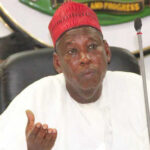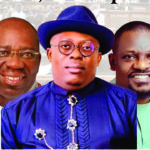
Nigeria’s 2023 general elections, particularly, the presidential election, will be testing the efficacy and the precise place of certain variables which, to some, had been our albatross as a country struggling to survive against run of the mill.
First, what exactly is the role of individuals in society. The other variables which will be tested in the presidential elections are ethnicity and religion. There are different and sometimes conflicting perspective on these two last phenomena.
How potent are they? Weakening or gaining strength or unchanging under modernisation and globalisation? Are our political parties becoming strong institutions to reduce the potency of ethno-religious in our voting behaviour? If the ruling party remains cohesive beyond elections and wins the presidency, then, ethnic and religious solidarity is waning rather wining. It can then be tentatively concluded that loyalty to political party is on the ascendancy. Only electoral statistics can confirm this. As a social scientist, I cannot dismiss blatantly the impact of diverse policies that had been crafted over the years by governments at all levels to promote national integration and unity. Why fight a civil war? Why did Adekunle Fajuyi give up his life? Why NYSC? And many more.
The first republic witnessed formidable visibility of indomitable individuals who almost towered above their regions. Their influence was irrepressible. The interest of these big political elite could easily be exchanged or substituted for the interest of their diverse regions. Any attack directed at them could ostensibly mean an affront on the political regions that they represent.
Interventions by the military in Nigeria’s political life coupled with corruption and the pervasive role of money culture had altered our perceptions of politics and of political merchants. However, it wouldn’t be an honest assessment to insist that flamboyant politicians who wade tremendous influence out of power had completely disappeared. It is not yet the triumph of money.
In 2015, it was a perfect combination of the large followership which the present president Muhammadu Buhari enjoyed in most of the north and the support of leading lights in the south west that facilitated victory together with the merger of two or so opposition political parties that led to the triumph of the then nascent All Progressives Congress. It is indisputable that General Buhari was then generally popular among the poor in the north. He rode to power on the basis of this. It wasn’t possible for the south west to have partnered with any other politician in the north if winning at all cost was the goal. Of course, they were not strangers to General Buhari’s antecedents. In the language of Nicolas Machiavelli, the end justifies the means.
The question that comes to mind here is whether there was any other personality in the south west that enjoyed significant followership and parade the social profiles that would have been acceptable to the north other than Asiwaju Bola Tinubu? It seems far fetched. So, Tinubu’s personality as was the case with Buhari is on trial. Not many had gone into an elective political office and exit with the same accolade and lavishness of affection with which he was ushered in. Buhari had certainly been demystified and in term of his popularity rating, he may be adjudged as being at lowest ever.
What of the efficacy of religion and ethnicity and in fact of political party institutional building? Permit me to state that the merger of two or three parties in 2013 was in itself a major victory for those who subscribe to the flexibility of ethnicity and religion. It is not unchangeable. Where necessary, they can become a positive factor in political stability. Whenever necessary, leading elite desirous of an alliance can work to transcend artificial barriers of ethnicsake religion for the sake of framing national consensus and building a national society. The making of country out of a motley of perhaps uncountable ethnic groups isn’t a walk in the park.
On religion, depending on how it is perceived, it can simultaneously be a factor in unity and also in disunity. There had been vehement objections to a Muslim-Muslim ticket which was alleged to be grossly insensitive to Nigeria’s diversity. A counter argument was that what matters most is a team that will deliver the required votes and good governance. If the Tinubu-Shettima ticket delivers victory for APC, it may imply a triumph of preference for good governance over ethno- religious sentiments.
If the hypotheses that religion and ethnicity no longer matter holds and APC wins, then what will this ticket throw up? Will the ticket be able to respond to the yearning of Nigerians on power devolution (or restructuring of polity), empowerment, poverty reduction as well as a more equitable resource sharing formula between the three tiers of government? Will the state houses of assembly give the required assent to accomplish the aforementioned? The popularity of a Tinubu’s Presidency will certainly hinge on this. For those who are Tinubu die-hard, election indicators make them to see bright light at the end of the tunnel and without conceding much chance to other contestants.
If the envisaged reforms scale through the national assembly and state houses of assembly, then it would have been a vote for a new dawn in our county. If otherwise, then it would have been wasted efforts.
• Olurode, a Professor of Sociology and a former National Commissioner with the Independent National Electoral Commission (INEC) recently retired from the University of Lagos.












